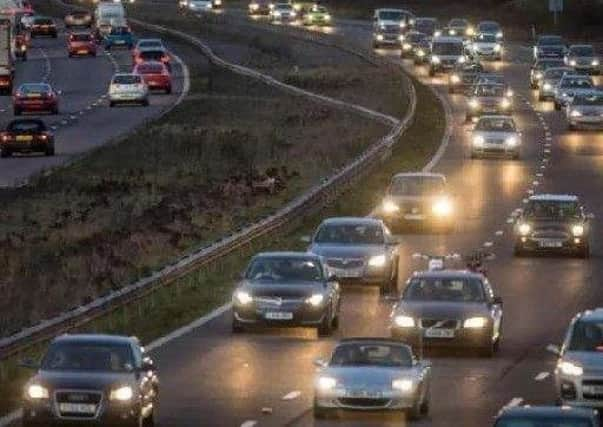Ban diesel and petrol before 2040, say MPs


The unprecedented joint inquiry concluded that the Government’s 2040 plan “lacks sufficient ambition” given the “national health emergency” of air pollution causing 40,000 early deaths a year.
Ministers should bring forward the date of the ban to move “in line” with bolder plans in other countries like Norway, which targets selling only zero-emission cars by 2025, and the Netherlands, which will ban diesel and petrol vehicles from 2030, the MPs said.
Advertisement
Hide AdAdvertisement
Hide AdThe probe was launched amid concerns over the Government’s air quality plans, which have repeatedly been successfully challenged in the courts by environmental groups.
Wakefield MP and Environmental Audit Committee chair Mary Creagh said: “Ministers have failed to address the polluted air in our choking cities.
“We need a new Clean Air Act to ensure the Government remains accountable for failures to achieve air quality commitments after the UK leaves the EU.”
Advertisement
Hide AdAdvertisement
Hide AdConcerns over nitrogen dioxide (NO2) emissions have grown since Volkswagen was found in September 2015 to have cheated air pollution tests for 11 million diesel vehicles worldwide.
The MPs called for tough new rules to force the automobile industry to contribute to a new clean air fund following the “polluter pays” principle.
The Government was also urged to widen its much-criticised 2017 air quality plan “to offer direction, financial resources, and technical support” to 45 local authority areas which breach NO2 limit levels.
Leeds was ordered by the Government to take action after being branded one of the UK’s 29 worst pollution hotspots, along with Sheffield and Rotherham, and likely to breach air quality limits until 2020.
Advertisement
Hide AdAdvertisement
Hide AdThe city’s council has proposed a Clean Air Zone by 2020 that would charge buses, HGVs, taxis and private hire vehicles that fail to meet the latest emissions standards for entering.
The Government said it will respond in due course, and stressed the UK led the way among major economies in announcing the 2040 ban.
“Air pollution has improved significantly since 2010, but we recognise there is more to do which is why we have a £3.5billion plan to reduce harmful emissions, and will set out further actions through a comprehensive clean air strategy later this year,” a spokesman said.